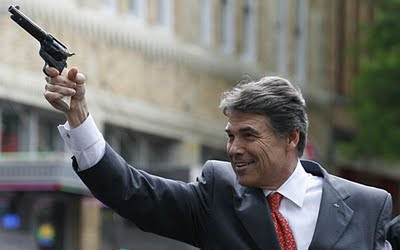On Thursday, the Texas secretary of state’s office sent the minority voter photo ID information to the U.S. Department of Justice that the USDOJ had requested last September and again on November 16, 2011. If Texas had not returned the requested information to the USDOJ by Monday, January 16, 2012, the USDOJ would likely have rejected Texas request for preclearance of Senate Bill 14 - Texas' voter photo ID legislation. The USDOJ now has up to 60 additional days to review the recently submitted information before rendering a decision to approve or block the law.
Of the eight states that passed voter ID bills last year, Alabama, Mississippi, South Carolina and Texas -- because of a history of past discrimination against minority voters -- must have pre-clearance from the Justice Department before instituting new procedures. Under Section 5 of the federal Voting Rights Act, the Justice Department reserves the right to review laws that affect voter participation before they are enacted.
Originally set to go into effect on January 1, 2012, the Texas law would require voters to present one of a limited selection of government issued photo IDs to election Judges in order to qualify to vote. The accepted forms of currently dated photo identification are: Department of Public Safety issued Texas driver's license, Texas election ID , or personal identification card; Texas concealed handgun license; U.S. military ID card; U.S. citizenship certificate; or U.S. passport.

On November 16, 2011 Christian Herren Jr., the U.S. Department of Justice (USDOJ) Civil Rights Division Voting Section Chief,
informed the Texas Secretary of State’s office by letter that the state had yet to provide the voter photo ID related information the USDOJ requested at the end of September.
In the letter, Herren informed the Texas Director of Elections, Ann McGeehan, that without the requested information the USDOJ is unable to determine if the voter photo ID law will “have the effect of denying or abridging the right to vote on account of race, color, or membership in a language minority group.” The USDOJ must make that determination before the law may be implemented.
Texas had 60 days from the date of Herren's Nov. 16th letter to respond with the requested data.
The Secretary of State filed its original request for preclearance in July, but the USDOJ determined in September that it needed more information. Specifically the USDOJ requested the racial breakdown and counties of residence of the estimated 605,576 registered voters who do not have a state-issued license or photo ID, and how many of them have Spanish surnames. It requested the same information for registered voters who do have valid IDs.
The Texas Secretary of State (TXSOS) had initially told the DOJ that 605,576 registered Texas voters do not appear to have a Texas driver’s license or personal ID card. The SOS report indicates that in 27 of Texas' 254 counties, at least 10 percent of the registered voters might be unable to cast ballots. In Presidio County in Southwest Texas as many as 25.9% of registered voters might not have the required photo ID, which will block as many as 1,313 out of the 5,066 registered voters in that county from casting ballots in any election.
Last fall, the Brennan Center for Justice issued a report on its research that shows as many as 11% of eligible voters nationwide do not hold a government issue photo ID. With 18.8 million voting age citizens in Texas, as counted by the 2010 U.S. census, as many as 2.1 million (11 percent) registered and unregistered voting age citizens in Texas possibly do not hold a Texas driver’s license, personal ID card or other government issued photo ID document.
On October 5 Texas responded to the USDOJ by saying it did not have the requested information because it does not collect race data on voter registration applications. So instead, it submitted a spreadsheet list of all the Hispanic surnames in Texas, as determined by the U.S. Census Bureau. The spreadsheet shows how many voters did not provide an ID when they registered to vote, how many voters did not provide an ID, but whose records matched an ID record in the Department of Public Safety database — meaning they have been issued an ID — and those who did not provide an ID and could not be matched with a DPS record.
The Texas Democratic Party followed up with its own letter and spreadsheet to the USDOJ showing that in at least 46 Texas counties, over half the voters who do not have one of the required photo ID's are Hispanic. The Texas Democratic Party and various organizations staunchly opposed SB14 on the grounds it will disenfranchise elderly and minority voters.
Though the state subsequently said it would use DPS data to compile a breakdown of Hispanic surnames, it had yet to submit the information to the USDOJ by mid-November. On November 16, USDOJ Civil Rights Division Voting Section Chief T. Christian Herren Jr. sent a letter to the Secretary of State's office reminding the state that it provided “incomplete” information that does not enable USDOJ Civil Rights officials to determine whether their proposed voter ID law would be discriminatory.
“Although you did not indicate a date when this information would be available, you noted that the state will provide the results of its analysis as expeditiously as possible,” the letter stated.
On Thursday, January 12, 2012 the Texas secretary of state’s office finally sent the additional information to the USDOJ, which restarts the 60 day clock on when the department must to make a decision about whether the law complies with the Voting Rights Act. The USDOJ may make that determination at anytime before the new March 13, 2012 deadline.
A new Democracy Corps poll revealed a nightmare scenario for Republicans where not only does Obama get reelected but Democrats regain total control of Congress.

